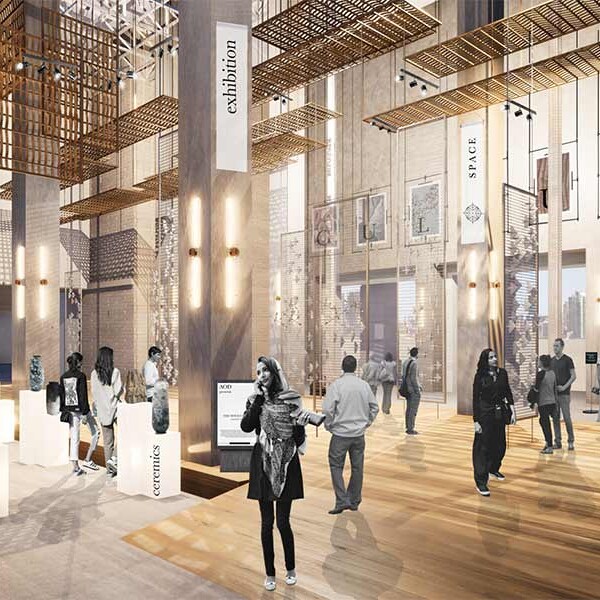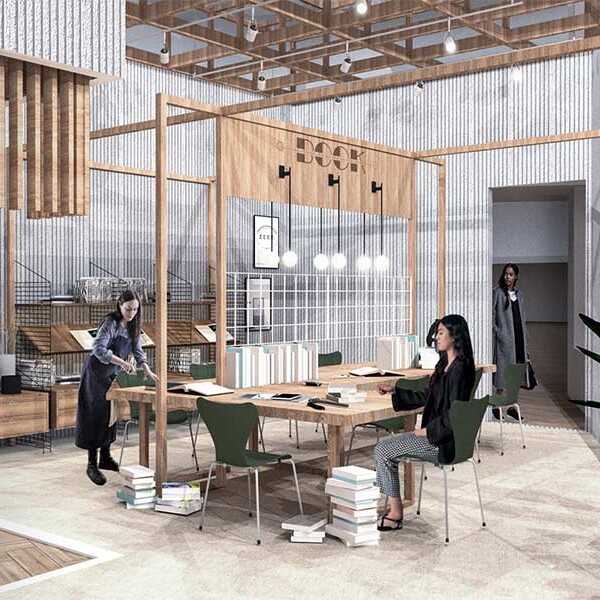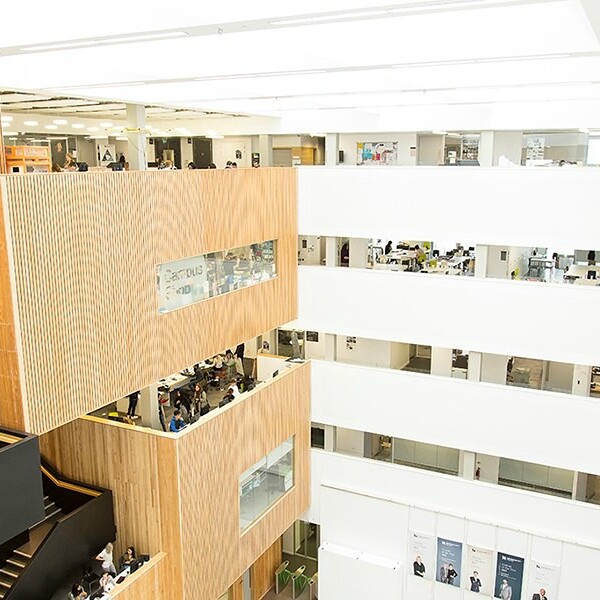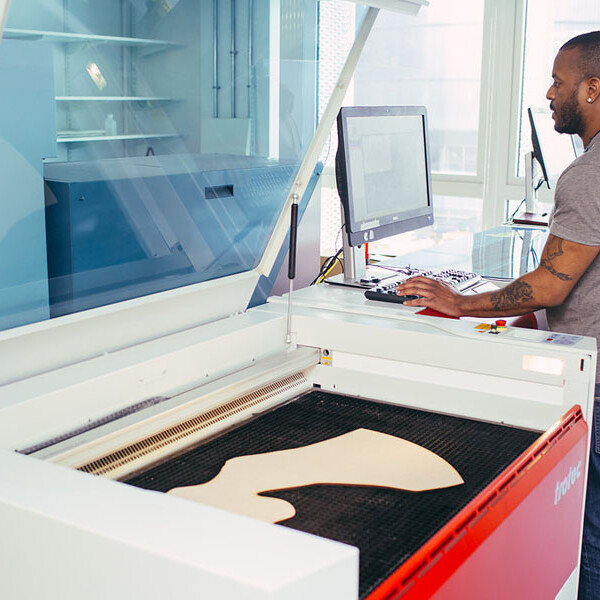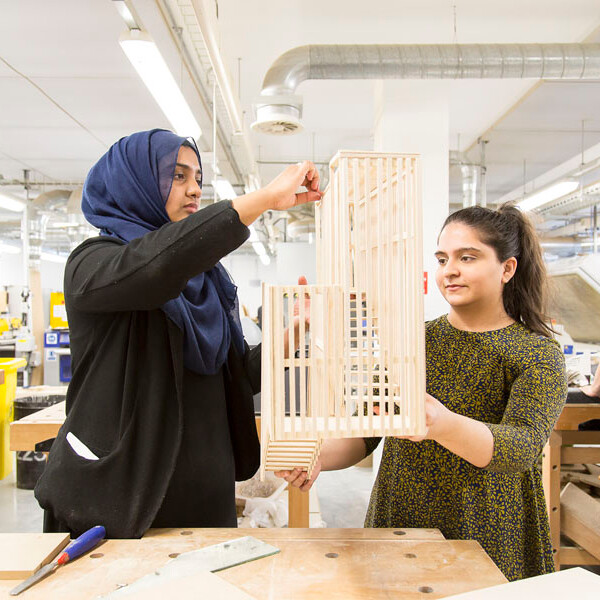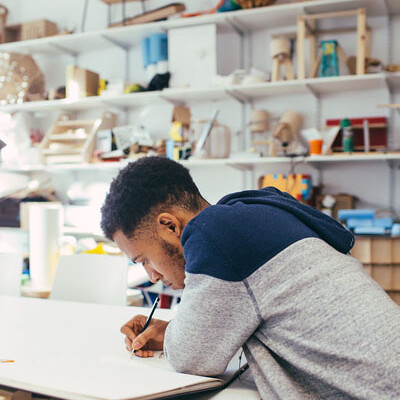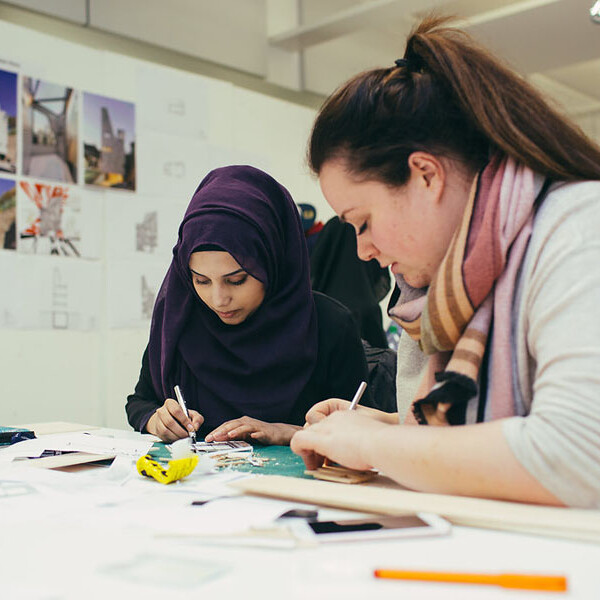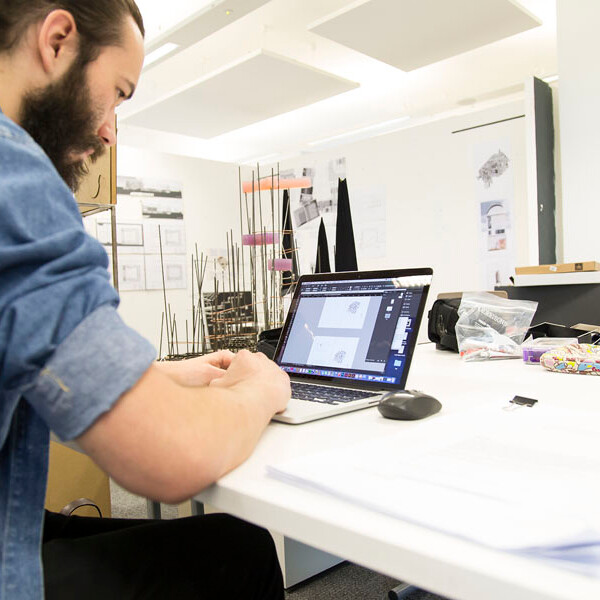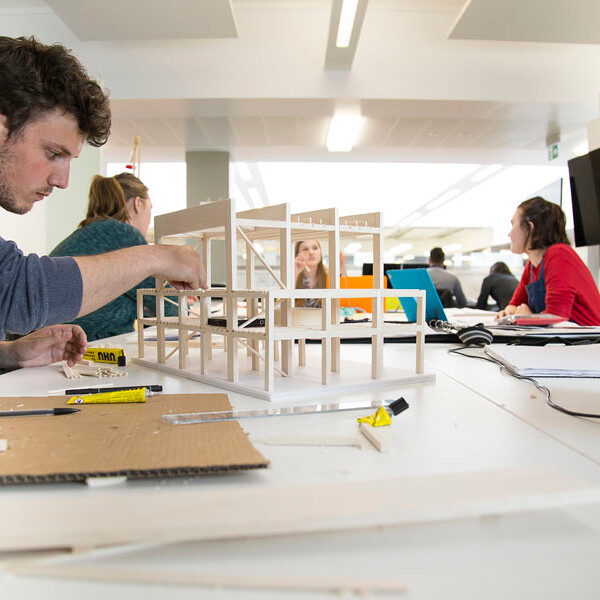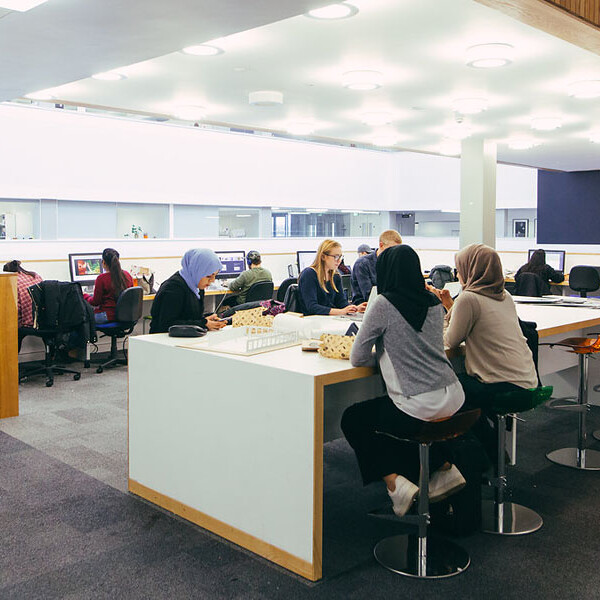Interior Architecture and Design - MA
Currently viewing course to start in 2025/26 Entry.
Through encouraging and promoting experiential learning, the MA Interior Architecture and Design course embraces the truth that designing is a creative adventure....
- Level Postgraduate Taught
- Study mode Full Time
- Award MA
- Start date September 2025
- Fees View course fees
- Subjects
- Location City Centre
This course is:
Open to International Students
Overview
Through encouraging and promoting experiential learning, the MA Interior Architecture and Design course embraces the truth that designing is a creative adventure.
This twelve-month programme will enable you to form an understanding and appreciation of theoretical, practical and professional issues that are informing the evolution of contemporary interior architecture and design professional practice.
What's covered in this course?
On the MA Interior Architecture and Design programme you will explore the distinctive qualities associated with the interiors of inhabited architecture.
By looking at the cultural, practical and atmospheric aspects of interiors created by architects, artists and designers, as an innovator you will be able to strategically develop creative interfaces and determine how users will perceive and behave in the spaces that your are conceiving.
Making speculative work is an important aspect of the programme. As individuals you will establish your professional identity as autonomous creative practitioners by blending philosophy, artistry and practicality in order to compose an interior design scenario that is future-focused and personally and culturally meaningful. By exploring innovative practices embedded within your own design process, this reflective practice will act as a stimuli for you to challenge existing assumptions about interior design and push the international platform for the profession forwards into new and versatile directions.
A key aspect of the course is that it will encourage a spirit of 'internationalisation', which will contribute to the establishment of a culturally rich, vibrant and diverse learning studio environment. Fostering the ambition of ‘life long learning’, you will create a dynamic continual development plan. This will allow you to draw on the expertise and global networks associated with the institution, reflecting the full spectrum of opportunities that can help you to enrich and nurture your career. Previous postgraduate students on the programme have been employed at leading international architectural practices as architects, interior designers, or as design lecturers in further and higher education institutions, with the pathway to postgraduate Doctoral PhD study also opened up as a result.
Moments of inspiration cannot be pinned down to one or two; it was everywhere around me! It was in Graham’s lectures and his morning chats. It was within my colleagues, their design approaches and how they see things different than the way I do. It was in my course director, Delia and her encouraging tutorials and constant encouraging talks. Inspiration was the soul of the course, was ongoing until the end.
Tamadher Alfahal, MA Interior Architecture and Design graduate
Why Choose Us?
- The programme is dedicated to providing you with a dynamic range of quality postgraduate experiences and opportunities.
- Situated in the renowned Birmingham School of Architecture and Design, the MA Interior Architecture and Design postgraduate course offers a practice-led, transformational learning journey.
- Choice enables you to independently self-select modes of study within each of the modules that make up the programme.
- Interior architecture and design learning plans can be tailored to meet your academic and creative aspirations.
- The trans-disciplinary approach of the course allows you to pursue different orientations as designer, from the re-ordering and refurbishment of existing architecture to generating spatial interventions through creativity.
- Two-thirds of the impact of our research was judged to be very considerable (3*) or outstanding (4*) - REF2021
Similar Courses
OPEN DAY
Join us for an Open Day where you'll be able to learn about this course in detail, chat to students, explore our campus and tour accommodation. Booking isn't open for this event yet, register your interest and we'll let you know as soon as booking goes live.
Next Event: 28 June 2025
Entry Requirements
Essential requirements
Applicants are normally expected to have a minimum of a 2:2 honours degree, or equivalent, in Interior Design or a closely related three dimensional design discipline.
We also welcome applications from individuals who may not satisfy the normal entry requirements, but have substantial work experience. Such applications will be considered on a case-by-case basis.
Applicants will also need to submit a good portfolio.
Applying with international qualifications
See below for further information on applying as an international student.
If you have a qualification that is not listed, please contact us.
Fees & How to Apply
UK students
Annual and modular tuition fees shown are applicable to the first year of study. The University reserves the right to increase fees for subsequent years of study in line with increases in inflation (capped at 5%) or to reflect changes in Government funding policies or changes agreed by Parliament. View fees for continuing students.
Award: MA
Starting: Sep 2025
- Mode
- Duration
- Fees
- Full Time
- 1 year
- £9,190 in 2025/26
- Full Time
- 18 months (including Professional Placement - see below*)
- £10,110 in 2025/26
International students
Annual and modular tuition fees shown are applicable to the first year of study. The University reserves the right to increase fees for subsequent years of study in line with increases in inflation (capped at 5%) or to reflect changes in Government funding policies or changes agreed by Parliament. View fees for continuing students.
Award: MA
Starting: Sep 2025
- Mode
- Duration
- Fees
- Full Time
- 1 year
- £18,600 in 2025/26
- Full Time
- 18 months (including Professional Placement - see below*)
- £20,460 in 2025/26
Application deadlines
We advise you to apply early to allow sufficient time for you to prepare to start your studies in September. Please apply by Friday 18 July to allow time to arrange accommodation, student finance and visas where required.
Late applications will be accepted where places are still available, but please note that Welcome Week begins on Monday 15 September 2025, and teaching begins on Monday 22 September 2025. International students are invited to arrive from Monday 8 September 2025.
To find out more, see our application timeline.
*Professional Placement option
The Professional Placement version of the course is optional and is offered as an alternative to the standard version of the course.
This will allow you to complete a credit bearing, 20 week Professional Placement as an integral part of your Master’s Degree. The purpose of the Professional Placement is to improve your employability skills which will, through the placement experience, allow you to evidence your professional skills, attitudes and behaviours at the point of entry to the postgraduate job market. Furthermore, by completing the Professional Placement, you will be able to develop and enhance your understanding of the professional work environment, relevant to your chosen field of study, and reflect critically on your own professional skills development within the workplace.
You will be responsible for finding and securing your own placement. The University, however, will draw on its extensive network of local, regional and national employers to support you in finding a suitable placement to complement your chosen area of study. You will also benefit from support sessions delivered by Careers+ as well as advice and guidance from your School.
Placements will only be confirmed following a competitive, employer-led selection process, therefore the University will not be able to guarantee placements for students who have registered for the ‘with Professional Placement’ course. All students who do not find a suitable placement or do not pass the competitive selection process will be automatically transferred back to the standard, non-placement version of the course.
Portfolio guidance
If you receive an offer to study this course, you will be required to submit a portfolio. We ask that this is submitted within four weeks of receiving your offer.
Please see our portfolio guidance page for tips on putting your portfolio together.
Portfolio guidance
If you receive an offer to study this course, you will be required to submit a portfolio. We ask that this is submitted within four weeks of receiving your offer.
Please see our portfolio guidance page for tips on putting your portfolio together.
Personal statement
You’ll need to submit a personal statement as part of your application for this course. This will need to highlight your passion for postgraduate study – and your chosen course – as well as your personal skills and experience, academic success, and any other factors that will support your application for further study.
If you are applying for a stand alone module, please include the title of the module you want to study in your Personal Statement.
Not sure what to include? We’re here to help – take a look at our top tips for writing personal statements and download our free postgraduate personal statement guide for further advice and examples from real students.
Course in Depth
Modules
In order to complete this course you must successfully complete all the following CORE modules (totalling 140 credits):
This module will provide you with both academic and creative opportunities to engage with different perspectives on; commercial markets, design processes and design practice. These inter-related elements are often cited as essential factors in the evolution of the dynamic ‘Design Systems’ that are associated with design projects. By focusing on contextually specific architecture sectors, you will use a combination of theoretical and practical analysis, to define, examine and hone your own appreciation of the Design System within which you are working. In doing this, you will define alternative theorems and strategies relating to the construction and deconstruction of design ideas, mechanisms, and processes as part of your own interior architecture and design practice.
This module will engage you in Experiential Learning. Taking as a starting point that “There are two goals in the experiential learning process. One is to learn the specifics of a particular subject, and the other is to learn about one’s own learning process.” (Kolb & Kolb, 2008: 58). The Experiential Learning Model (ELM) developed by Roger Fry and David Kolb, presents a systems view in which learning is composed of four ‘concrete’ elements, namely:
- Concrete experience
- Observation and reflection on the concrete experience
- Formation of abstract concepts based on the reflection
- Testing new concepts
The purpose of the module is to enable you to undertake a sustained, in-depth and theoretically informed research project exploring an area that is of personal interest to you. It is important that we can support you appropriately, so you will be guided towards choosing a research topic which is relevant to your discipline and in which your lecturers have expertise. The outcome may take the form of a written dissertation or a practical outcome with accompanying reflective, critical and contextual material. The main consideration when choosing your topic is that it must be relevant to your programme and you should consider the relevance of this topic to your future academic or professional development.
In order to complete this course you must successfully complete the following SHARED SUBJECT module.
Taking an internationalised stance, this module is concerned with the meaningful context of design practice and considers the cultural, aesthetic, political, economic and social factors that influence designers. By focusing on how these macro conditions effect an individual designer’s decision-making processes and Praxis, the development of specific design ‘cultures’ can be evaluated at an individual, corporate, national and global level. By focusing on a design precedent, you will consider how the designer’s outputs are utilized, valued and absorbed by the design industry at large – including curators, journalists, bloggers, businesses, brands, retailers and the general public. By applying practice-led research, you will form a better understanding about the international and local influences that impact on your own respective design specialism and the resultant design cultures that are emerging within this industry sector.
In order to complete this course you must successfully complete at least the following OPTIONAL module.
The module is an opportunity to learn and critically reflect on the skills of collaboration. Collaboration is a vital employability skill within the Creative Industries and this module allows you to develop these skills, making use of University facilities, with the support of academic staff. Within this module framework, several kinds of collaborative opportunities are available. Your supervisor may set you a predetermined live project, to enable you to work with other students in a way that is appropriate to your subject area; or there may be opportunities for you to collaborate with staff on research projects. In all cases, you must apply your subject skills to a project which will be agreed in advance with your supervisor.
Core modules are guaranteed to run. Optional modules will vary from year to year and the published list is indicative only.
Download course specification
Download nowThe course is structured into three ‘Trimester’ periods that are designed to both build your confidence and improve your level of ability across a range of design and academic contexts.
Each Trimester has been carefully designed to enable you to explore your potential and chart your unique learning curve. During each period, the staff team and your peers will help you to reflect on your practice and recognise when you have developed professionally as you make the transition towards your enhanced career prospects.
Phase 1: Building a foundation of knowledge and skills
This is the most instructional phase of the programme, with a rich timetable of theoretical, practical and interactive sessions. Transitional activities are embedded into the design of each module. This phase ensures core sector knowledge and the development of the required skills needed for you to become independent learners and be successful at later stages of the course.
Phase 2: Experience through practical application
During this phase you will have the opportunity to work on self determined briefs and/or ‘live’ projects on an individual or interdisciplinary group basis. The focus is on learning by doing (experiential learning), putting into practice the knowledge and skills developed during phase one. You will be given greater independence to communicate, argue, problem-solve and rationalise. Tutors will provide milestone reviews and facilitated peer-to-peer discussion to support your professional practice.
Phase 3: Personalised learning and independent study
During this phase you will be given greater autonomy to direct your learning journey by engaging in external partnerships that align with your particular interest and through establishing your own goals. There is no taught content and support is available via scheduled tutorials.
Further Study
During your studies, you might want to investigate the broad platform of Masters programmes and research degrees that are available at the University. This may include a Doctorate of Philosophy.
Within Birmingham School of Architecture and Design there is an evolving research collective that now includes a cluster of scholars that are actively pursuing Interior Design PhD research interests.
As an international hub, we interrogate the most vibrant, diverse and ambitious research and professional practice activities in the subject area. This research focuses on the advancement of scholarship, creative innovations and applied professional practice across a breadth of architecture and interior design related creative practice.
Our extensive connections include professional organisations, designer makers and curators, academics and research fellows, as well as exchange and overseas students. As an early stage emerging researcher and member of this team you would become increasingly engaged with activities such as delivering at leading academic and industry-specific conferences, events, seminars, symposia, exhibitions and access innovation events.
Employability
Enhancing your employability skills
The MA Interior Architecture and Design programme aims to foster postgraduates with a set of attributes, which prepare them for their future careers and see that they are:
- Professional and work-ready
- A creative problem solver
- Enterprising
- Have a global outlook
Links to industry
As a postgraduate student at Birmingham School of Architecture and Design you will be encouraged to prepare for employment by engaging with a range of supportive activities and events including:
- Continuing Professional Development (CPD) sessions that focus on employability skills and action planning
- Focused architecture sector lectures
- Alumni /employment and interview surgeries hosted by 'Superstudio'
- Interaction with the careers service advisors and careers events hosted at the University
- Friends of Birmingham School of Architecture and Design – An extensive network and broad spectrum of connections and industry partners that create opportunities for our students. These are introduced via your staff team, signposted on Moodle or published on noticeboards around the School and on social media platforms
- Design competitions
- Design bursaries and scholarships
- Creative exhibitions
- Collaborative Practice - Live and collaborative projects
- Volunteer organisations connected to the School
- Architecture and design conservation projects
- Industry events and awards ceremonies
- Work experience, internships and employment opportunities
Our Graduates
Jack Elsom
Interior Designer at Harrison, Sutton Coldfield
Graduated 2021
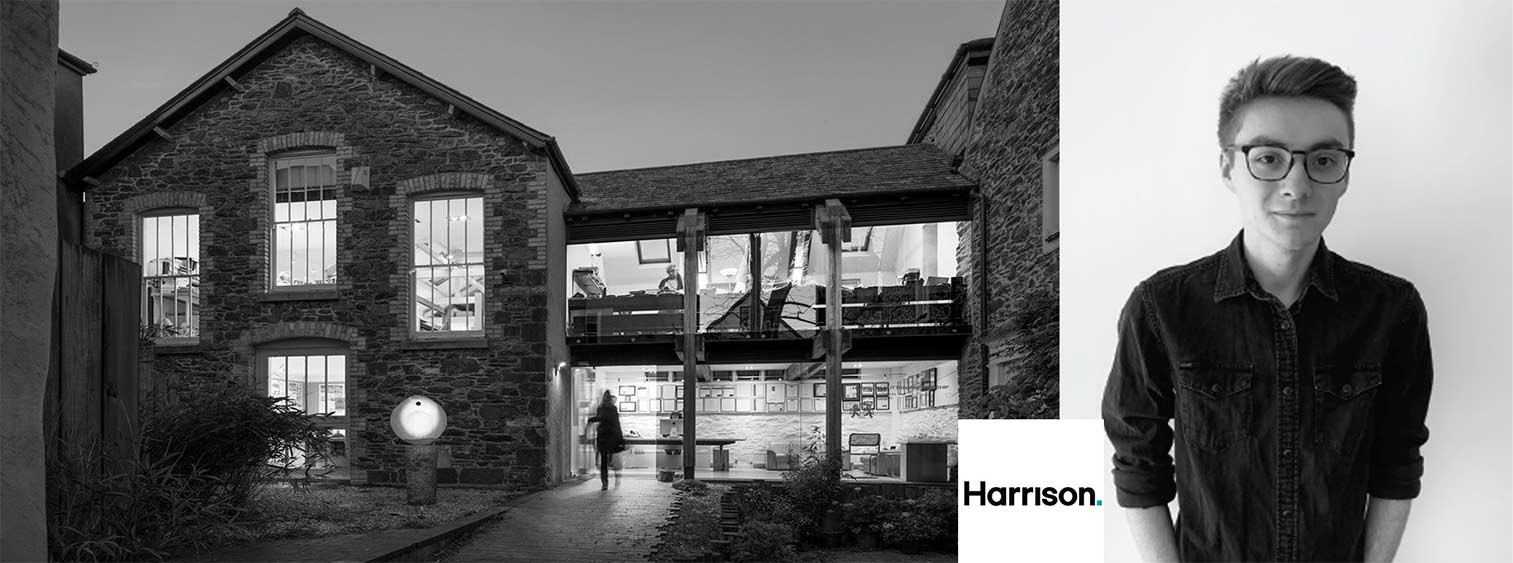
“Over the course of the Interior Architecture and Design MA, I feel that I was regularly encouraged to question my role as a designer and to continuously reflect on my individual approach, philosophy and design praxis.
For me, this was one of the greatest strengths of the course, since it allowed me to evolve and adapt my own design processes, whilst pushing myself to experiment with new methods and techniques, integrating new theories from different academic disciplines including Architecture, Interior Design and the field of Design Thinking.”
Sebastian Demus
Interior Designer at Gensler, Birmingham
Graduated 2021
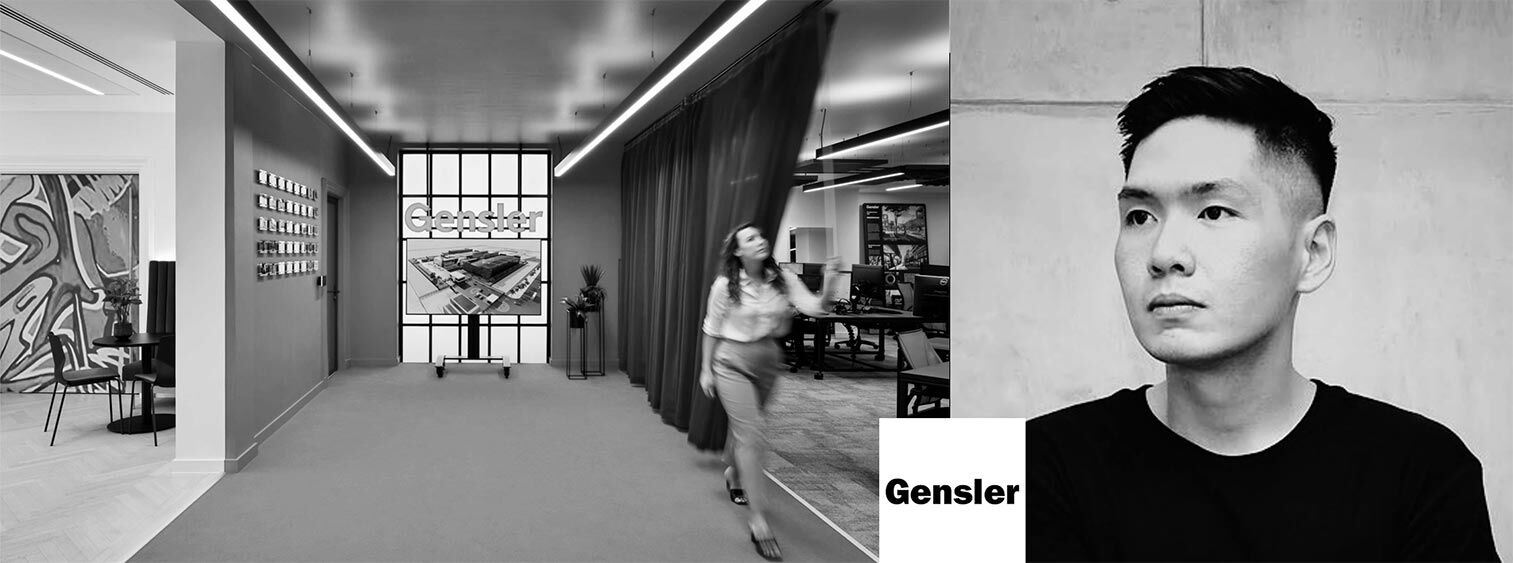
“The MAIAD course has been so insightful. It has allowed me to challenge my assumptions and develop new perspectives about Designing. In particular, the Co.LAB module was an unforgettable experience. I gained my design sensitivity during this module.
My design approach has become more human centred, and with respect, I now put ‘experience’ at the heart of my design process. By collaborating with others, I have realised that ‘we’ can empathise and design together, as the way to understand what the project mission ‘should be’, and what the Interior ‘could be’.”
Catherine Abdelshahid
Interior Designer at Foster + Partners, London
Graduated 2021
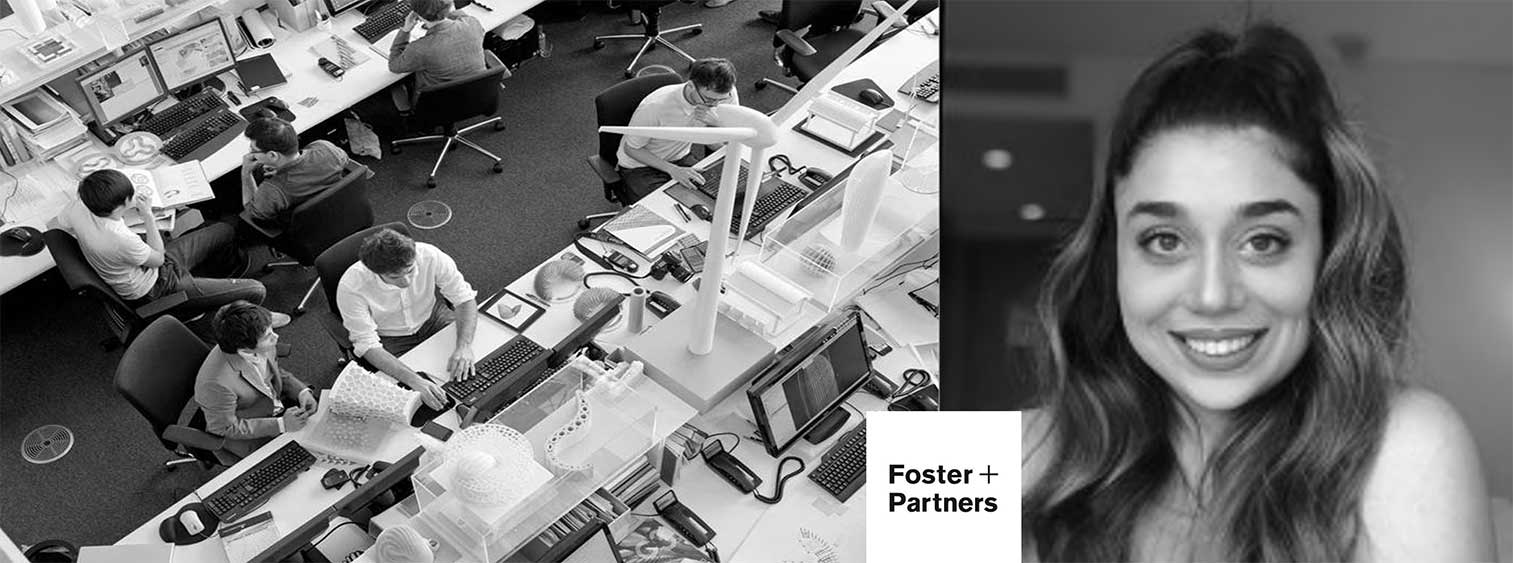
“Having graduated from the BA Interior Architecture and Design programme, I made an unnerving decision, during the COVID lockdown in the UK… to progress onto the MA Interior Architecture and Design course at Birmingham City University. On reflection, I can say it was the best decision I ever made. On this creative journey, I have enjoyed so many rewarding experiences and managed incredible achievements, which I am so proud of.
The course has been an eye-opener, helping me to apply new Design Thinking strategies, and be more reflective about the transformation of my own design approach, process, and practice. The tutors have helped each of us to become more confident, by questioning our design moves and challenging our design frames.
Our tutors, mentors, and industry champions have also reinforced our determination to channel our unique mindsets and design styles, towards our individual employment goals. In this regard, I have benefitted from a paid teaching role, which enabled me to be paid as a Studio Assistant with the BA and MA teaching Teams. In 2022, whilst working as a Graduate Studio Assistant on the MAIAD course, I was given the chance of a life- time…an interview to work at the ‘Best Architect in the World’ according to the Architects Journal. After a period of preparation and ‘Practice, Practice, Practice’, I successfully secured my dream job, and I have been working as an Interior Designer at Foster + Partners since October 2022.”
An interview with Catherine Abdelshahid
Facilities & Staff

Our Facilities
When you join Birmingham City University, the first thing you will notice is the exceptional quality of our campuses. With an investment of over £400 million across our buildings and facilities, we are committed to giving you the very best learning environment to help shape your experience.
You will be based in our multi-million pound Parkside building – a state of the art facility located within our City Centre Campus. Here you will have full access to our recently upgraded, high spec CAD (Computer-Aided-Design) workstations situated within our dedicated computer labs and open access areas. We also provide access to leading edge digital design software, enabling you to explore technical drawing, graphics, 3D modelling, visualization, animation, computation, simulation, and virtual reality.
The Parkside Building is also home to our digital fabrication labs, where you will be able to explore 3D printing, laser cutting, CNC machining, ceramics, glass and traditional model-making, guided by our team of expert technicians with access to our on-site material store, and professional printing facilities.
You’ll also benefit from:
- Design studios
- Physical and digital library
- Loanable laptops
- Dedicated social spaces
- Cafés
Photo Gallery
From industry-standard software, to our workshops and studio spaces, everything you need will be at your fingertips from day one. Working with our dedicated teaching teams and expert technicians, you'll be supported from concept through to completion.
Our staff
Dr Ana Araujo
Senior Lecturer, Course Director MA Interior Architecture and Design
Ana Araujo was trained as an architect, and she currently works in the fields of art curating, research and education. Her interests range across the fields of design, the visual arts, psychology, anthropology and gender studies.
More about Ana


















